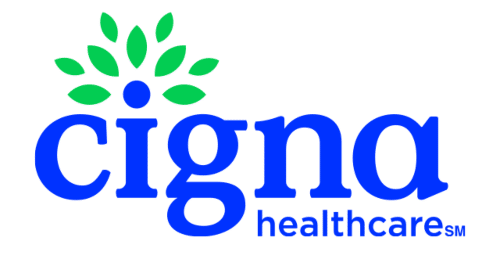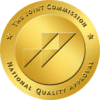Our Costa Mesa Drug Counseling and Addiction Therapy
Get Addiction Help in Costa Mesa & Huntington Beach
If you are struggling with drug addiction, you are far from alone. According to the NIH, a staggering 10% of adults in the U.S. will face some drug addiction at some point in their life.
Drug counseling and addiction therapy use proved methods to help patients who wish to overcome their addiction. The therapy sessions address the psychological aspects of addiction.
Here at Safe & Sound Treatment in Costa Mesa, we offer among the best Drug Counseling and Therapy in the Orange County area. Read below to find out more.
Benefits of Addiction Therapy
Certain medications and detoxification can address the physical aspects of addiction. Drug counseling addressing the psychological forces behind chemical dependency. Substance abuse help is based on clinical science.
Addiction counseling helps individuals learn about their addiction and what causes it. Certain actions or individuals can act as “triggers” for drug use. Counseling advice may include tips on how to replace triggers with positive substitutes.
Drug counseling help may not need long-term medication. Therapists guide patients to gradually alter their behavior through natural techniques.
Alternatives to Drug Counseling
Addiction therapy is a proven and reliable treatment. But there are treatment options that do not need therapy. In- or out-patient detox provides individuals with the tools to become sober.
A medical professional guides the process, and a medical regime is developed to aid the patient through recovery.
Once sober, there are voluntary group sessions and other resources available. These programs generally do not provide the level of care that drug counseling and addiction therapy can.
What Is Cognitive Behavioral Therapy?
Mental health professionals use Cognitive-behavioral therapy to address a wide range of ailments. Individuals with depression, anxiety, and drug abuse problems can enjoy CBT.
As Effective As Prescription Medications
According to the APA, studies have found CBT to be as effective or more effective than medication and alternative therapies. Medications can lead to other dependency issues.
Cognitive Behavioral Therapy Core Beliefs
Core beliefs in cognitive behavioral therapy include an understanding that:
- Psychological problems are often based on thought patterns
- Learned patterns of unhelpful behavior lead to drug addiction and other problems
- Patients can reduce chemical dependency by observing thought patterns
Patients are directed to focus on their current life. Many of the stresses that patients deal with often come from false beliefs.
How It Works
Therapists use cognitive behavioral therapy to teach patients to recognize their own distortions. The form of therapy also teaches patients to understand the motivations of others better. Practical problem-solving skills are often taught as part of therapy sessions.
Another part of the treatment may involve role-playing. The therapist can create situations that allow patients to test their coping skills. Patients can also gain skills to calm their bodies and mind.
Individual session methods will vary. Cognitive Behavioral Therapy is highly adaptable. The meetings are also collaborative in nature. This often creates buy-in from the patients.
After the first few sessions, a treatment plan will be drafted. Patients are expected to use the lessons learned in their day-to-day lives.
More Drug Counseling Options
Cognitive-behavioral therapy is considered the gold standard in drug counseling care. Here are several drug therapy options that are commonly offered. Many of these options incorporate CBT practices.
Twelve-Step Programs
The Alcoholics Anonymous program has used the 12-step program for decades. Now, the method is used to treat all types of addictions. Followers of the method rely on God or a "higher power" and the 12 tenets of the program to recover from addiction.
Relapse Prevention
Relapse does not mean failure, but patients should take steps to prevent a return to drug use. Relapse prevention helps patients understand the causes of relapse. These causes can include a lack of outside support or a lack of awareness of triggers for relapses.
Skills Training
Addiction can form due to a lack of important life skills. Learning how to cope with stress, peer pressure, and other realities of life can prevent unwanted relapses into alcoholism.
Client-Centered Therapy
Client-centered therapy puts the patients and therapists on equal footing. For the counselor, the goal is to be as non-directional as he or she can. Empathy and positive support are also pillars of this drug therapy method.
Motivational Interviewing
The aim of this therapy is to motivate the patients to avoid drug use. By overcoming barriers like fear of change, patients can be better prepared to overcome addictions.
Dialectical Behavior Therapy
Dialectical behavior therapy is a type of cognitive-behavioral therapy. The treatment focuses on acceptance and change. Core steps include group skills training, individual therapy, phone coaching, and group consultations.
Trauma-Informed Care
Patients who struggle with addiction have often experienced some form of trauma. Counselors and therapists work with patients to help them understand the role that past trauma played in their addiction.
Eye Movement Desensitization and Reprocessing (EMDR)
Eye movement desensitization and reprocessing, or EMDR, is a psychotherapy treatment. It allows people to heal from the symptoms and emotional distress that could result from trauma or negative life experiences. Clinicians help their clients activate the natural healing process through detailed protocols and procedures.
Am I Eligible for Outpatient Care?
Outpatient services allow patients to enjoy treatment without the need for weeks at a treatment center. To be eligible for out-patient care, patients often must first complete some level of intensive treatment. A medical professional will determine your eligibility for out-patient care.
Outpatient care should not be considered to be less effective than in-patient treatments. Outside, patients still spend significant amounts of time completing their treatment regimen. Outpatient care can take several weeks or several months to complete.
Take the First Step Toward Recovery
Many of the drug counseling and addiction therapy methods in this article rely on cognitive behavior therapy. The therapists at Safe & Sound Treatment will provide you with the tools to address your drug addiction.
We offer in-patient and out-patient services to address addiction programs with all common substances of abuse.
Our goal is to ensure that you or a loved one make a lasting recovery. All our patients feel supported and heard. To talk to one of our recovery specialists, contact us today.














